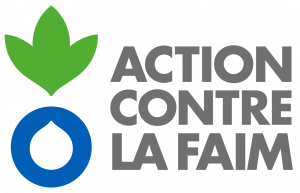
Development of edible caterpillar processing models to combat food insecurity in the Central African Republic
The main objective of this project is to contribute to the generation of knowledge and innovative practices for the development and structuring of the edible insect sector in the Central African Republic. The challenge is to remove a certain number of technological, economic and regulatory barriers to promote the consumption of edible insects, particularly caterpillars.
See the presentation material

- Intervention theme
-
- Agri-agro
- Health
- Area of intervention
-
- Other (please specify)
- Skills required
-
- Search for funding
- Type of partnership
-
- Sponsorship
- Financing
- In search of funding
The activities carried out will be :
- The study on the state of the resource, its availability, accessibility, present and future threats, associated policies, its past evolution and estimated future evolution through bibliographic research, interviews with local populations in addition to the 2018 study, and observation of forest plots. This study will be carried out by consultants or researchers from ISDR and LASBAD, possibly associated with international researchers (IRD).
- The creation of breeding structures (cages), based on pre-existing models commonly used in Europe or Africa and adapted to the local context (available materials, size of caterpillars, climate, etc.). Continuous improvement. Final documentation on materials, construction steps and costs.
- Trials of different caterpillar species and different food sources, including leaves available all year round.
- Trials to inoculate caterpillars in trees near houses or existing crops depending on several parameters (caterpillar species, tree species, season).
- The establishment of a nursery of fast-growing caterpillar trees, replanting of caterpillar trees to quantify the reforestation and caterpillar production potential of these trees.
- The reintroduction of caterpillar host trees in farmers' experimental plots in the project area.
- The synthesis of results on the efficiency of the processes of each trial in terms of caterpillar growth and size, productivity/m2 of rearing area, ease of rearing and harvesting, visual, taste and nutritional quality of the caterpillars and cost according to the parameters of each study.
- Recommendations for the implementation of commercial farms.
- Studies of the possible impacts and opportunities of the selected farming methods on vulnerable populations, in particular women gatherers and Pygmies, in social terms (change in lifestyle, etc.) and economic terms (loss of income in the event of strong competition from farming, etc.). Mitigation measures will be proposed (e.g. the creation of value chains for fresh, high quality, premium caterpillars from the forest and traditionally harvested, which are sold at a higher price, to help find new outlets (canvassing of restaurants in Bangui, etc.).
The specific objectives will be :
- O1: Quantify the state of the resource, its availability, accessibility, present and future threats, associated policies, its past and estimated future evolution.
- O2: Study the different types of caterpillar breeding possible and their technical and economic feasibility through several demonstrators.
- O3: Strengthen the research-action capacities of Central African research and training centres.
- O4: Secure the resource by planting caterpillar host trees



Are you interested in this project?
Get in touch with Action Against Hunger
to obtain contact information
You need to be logged in to request a match.
New to Coexist?







